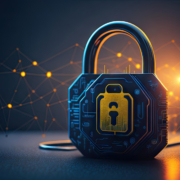The Importance of Security Awareness In Educational Facilities
The Growing Threat Landscape
In today’s digitally connected world, educational facilities such as schools, colleges, and universities are increasingly relying on technology to enhance the learning experience. However, with this reliance on technology comes the pressing need for robust cybersecurity measures. The education sector is not immune to cyber threats, and as educational institutions become more interconnected, the importance of security awareness cannot be overstated. In this blog post, we’ll explore the significance of security awareness in the context of cybersecurity for educational facilities.
Educational institutions store vast amounts of sensitive information, including student records, research data, financial information, and more. This wealth of data makes them attractive targets for cybercriminals seeking to exploit vulnerabilities and gain unauthorized access. Moreover, with the rise of online learning platforms and remote education, the attack surface has expanded, requiring heightened vigilance.
Security awareness involves educating staff, students, and stakeholders about the various cyber threats and best practices to mitigate risks. It’s about fostering a culture of cybersecurity where everyone understands their role in protecting sensitive information and the institution’s digital infrastructure.
The Importance of Security Awareness in Educational Facilities
- Data Protection: Educational institutions handle a treasure trove of data, from student records to cutting-edge research. Security awareness training equips staff and students with the knowledge to recognize and respond to phishing attempts, malware, and other cyber threats that could compromise this sensitive data.
- Preventing Disruptions: Cyberattacks, such as ransomware, can disrupt normal operations and jeopardize critical educational processes. Security awareness helps staff and students recognize the signs of potential threats, reducing the likelihood of successful attacks and minimizing disruptions.
- Protecting Personal Information: With students and staff sharing personal information online, the risk of identity theft and privacy breaches is significant. Security awareness empowers individuals to safeguard their personal data and navigate online platforms more securely.
- Safe Online Behavior: Education institutions often encourage the use of technology for research, communication, and collaboration. However, this also exposes users to various online risks. Security awareness teaches safe online practices, such as using strong passwords, avoiding public Wi-Fi for sensitive tasks, and being cautious when clicking on links.
- Cultivating a Cybersecure Culture: A strong cybersecurity culture starts with awareness. When students, faculty, and administrators prioritize cybersecurity, it creates an environment where security measures are seen as integral to daily operations.
Implementing Effective Security Awareness Programs
To foster a culture of security awareness within educational facilities, consider the following strategies:
- Comprehensive Training: Offer regular training sessions that cover the latest cyber threats, attack techniques, and preventive measures. Tailor the content to various user groups, including students, faculty, and administrative staff.
- Simulated Phishing Campaigns: Conduct mock phishing exercises to help users recognize phishing emails and phishing attempts. These exercises can be eye-opening and provide valuable learning experiences.
- Clear Policies: Establish clear cybersecurity policies and guidelines for staff and students to follow. Regularly communicate these policies and explain their importance.
- Engagement and Rewards: Gamify security awareness training by offering incentives and rewards for individuals who consistently demonstrate good cybersecurity practices.
- Find A Trusted Security Partner: You will need a trusted security partner like SecureWon, someone who has the knowledge and experience to implement effective security awareness programs, monitor threats, and educate your staff.
Educational facilities are treasure troves of information and innovation, making them prime targets for cyber threats. Security awareness plays a pivotal role in safeguarding these institutions and creating a culture of cyber vigilance. By educating staff, students, and stakeholders about potential risks and best practices, educational institutions can build a resilient defense against cyberattacks, protect sensitive data, and continue to provide a secure environment for learning and growth in the digital age.
SecureWon at its core is a national technology services company. What separates us from other technology service providers is our commitment to providing superior documentation and accurate reporting of your organization’s security posture. This attention to detail and quality of our services is what drives us. Contact us today for a free assessment of your technology infrastructure.


